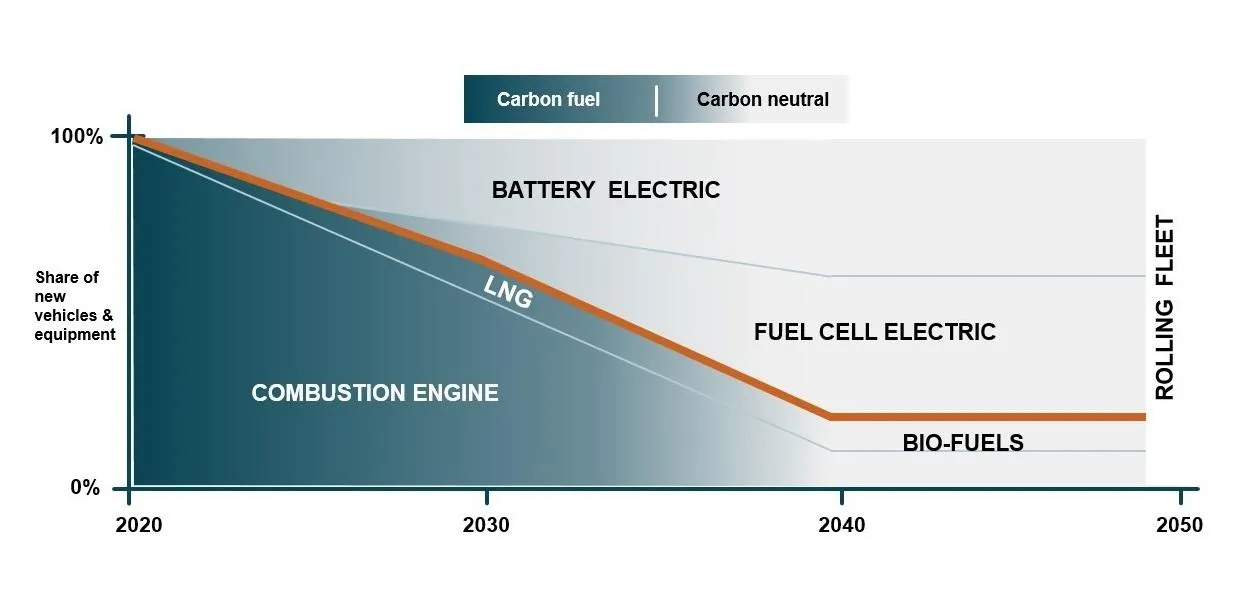Boston-Massachusetts headquartered OLEV Technologies has been appointed the exclusive north and south American licensee responsible for commercialising the OLEV (On Line Electric Vehicle) technology, a zero emission green transportation technology, invented at the Korean Advanced Institute of Science and Technology (KAIST)."OLEV technology is a proven, safe and cost-effective green transportation solution that can be deployed today," said Dr. Hikyu Lee, president & CEO of OLEV Technologies.
May 2, 2012
Read time: 2 mins
Boston-Massachusetts headquartered 4838 Olev Technologies has been appointed the exclusive north and south American licensee responsible for commercialising the OLEV (On Line Electric Vehicle) technology, a zero emission green transportation technology, invented at the Korean Advanced Institute of Science and Technology (KAIST).
"OLEV technology is a proven, safe and cost-effective green transportation solution that can be deployed today," said Dr. Hikyu Lee, president & CEO of OLEV Technologies. "An OLEV system equipped vehicle is really a tipping point for green transportation solutions as it is 100% emission-free, and solves the EV battery problem by delivering unlimited driving range; no down-time for recharging; and the battery size is physically smaller as well as less expensive. The cost of a bus that is OLEV-capable is marginally greater than a standard diesel bus, compared to a premium of 100% or more for a pure electric bus," he said.
One of the major innovations of OLEV is that a vehicle can be charged not only when it is parked via wireless power transfer, but also as it drives over the road-embedded charging strips, known as in-motion charging. No direct contact is necessary. With the ability to replenish its energy level continuously from road infrastructure, an OLEV-equipped vehicle does not need to be pulled out of service periodically for recharging the battery, thus making it lighter, easier to maintain and more efficient. Unlike a hybrid electric vehicle, it requires no internal combustion engine.
The OLEV technology solution is targeted to dedicated and semi-fixed route transit systems, including airport, campus and national park bus fleets, urban rapid transit systems and catenary-free electric trolleys and trams, as well as commercial fleets. OLEV technology can be retrofitted to existing fleets or deployed in all new fleets.
"By eliminating many of the technical barriers of battery electric vehicles, and delivering reduced energy costs with lower total investment, the OLEV system is far superior to hybrid electric vehicle (HEV) or plug-in electric vehicle (PEV) solutions," says Lee. "It is also an alternative to replace catenary-based electric trolleys and light rail systems owing to significant cost savings on the infrastructure deployment and on-going maintenance, fewer safety concerns and pure aesthetics," he added.
"OLEV technology is a proven, safe and cost-effective green transportation solution that can be deployed today," said Dr. Hikyu Lee, president & CEO of OLEV Technologies. "An OLEV system equipped vehicle is really a tipping point for green transportation solutions as it is 100% emission-free, and solves the EV battery problem by delivering unlimited driving range; no down-time for recharging; and the battery size is physically smaller as well as less expensive. The cost of a bus that is OLEV-capable is marginally greater than a standard diesel bus, compared to a premium of 100% or more for a pure electric bus," he said.
One of the major innovations of OLEV is that a vehicle can be charged not only when it is parked via wireless power transfer, but also as it drives over the road-embedded charging strips, known as in-motion charging. No direct contact is necessary. With the ability to replenish its energy level continuously from road infrastructure, an OLEV-equipped vehicle does not need to be pulled out of service periodically for recharging the battery, thus making it lighter, easier to maintain and more efficient. Unlike a hybrid electric vehicle, it requires no internal combustion engine.
The OLEV technology solution is targeted to dedicated and semi-fixed route transit systems, including airport, campus and national park bus fleets, urban rapid transit systems and catenary-free electric trolleys and trams, as well as commercial fleets. OLEV technology can be retrofitted to existing fleets or deployed in all new fleets.
"By eliminating many of the technical barriers of battery electric vehicles, and delivering reduced energy costs with lower total investment, the OLEV system is far superior to hybrid electric vehicle (HEV) or plug-in electric vehicle (PEV) solutions," says Lee. "It is also an alternative to replace catenary-based electric trolleys and light rail systems owing to significant cost savings on the infrastructure deployment and on-going maintenance, fewer safety concerns and pure aesthetics," he added.







